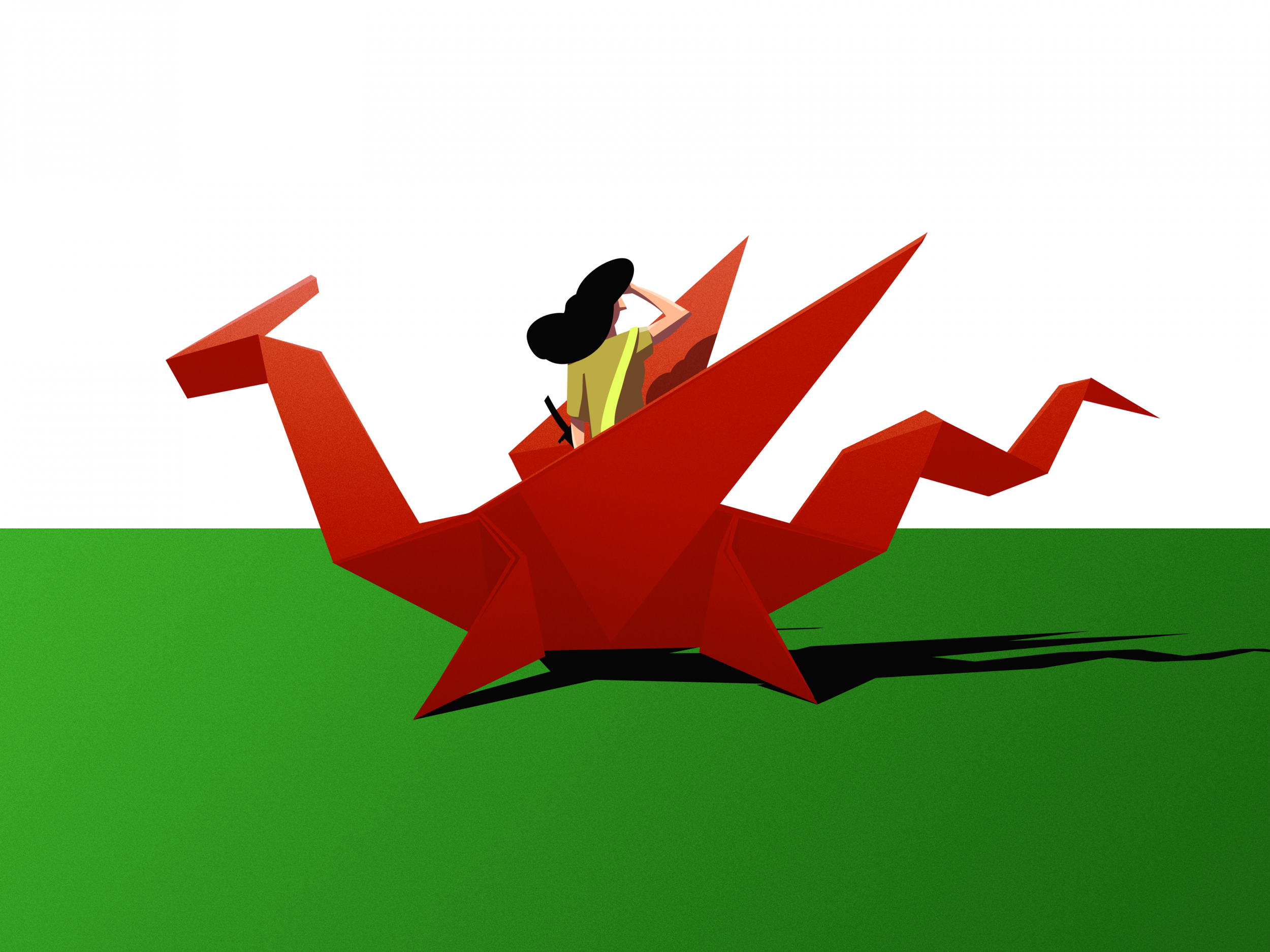Forget the battles and bloodshed, the samurai can teach you poetry and flower arranging
The legend of the samurai has endured because of its underlying philosophy, discovers Christine Manby while planning a warrior weekend


The hills and mountains of north Wales have seen thousands of feats of derring-do over the centuries but there can’t be many people who’ve walked those forbidding paths in full samurai armour. Antony Cummins has. On the face of it, Cummins is an unlikely samurai. The original samurai were the medieval military nobility of Japan, renowned for their selfless bravery in war. They dominated the country between the 12th and 19th centuries.
Cummins grew up in 1980s Manchester. But this was a time when all things Japanese were the rage in the UK. In 1980, Richard Chamberlain set hearts aflame as a 17th-century English navigator taken prisoner by samurai warriors in TV miniseries Shogun. By the end of the decade, The Teenage Mutant Ninja Turtles were crawling out of sewer.
Thus inspired, young Cummins threw himself into learning martial arts. Twenty years later, having studied ancient history and theoretical archaeology, Cummins travelled to Japan where he returned to the stories that had sparked his childhood passion. Working with a translator, he founded the Historical Ninjitsu Research Team, tracking down medieval manuals and scrolls, determined as he says to “change the perspective on the historical truth that lies behind the story of the samurai and the infamous ninja.”
Now based in Wales, Cummins has written more than 20 books and runs regular weekend samurai workshops. Participants, who unsurprisingly tend to come from a martial arts background, practice archery and cast moon charts to plan the perfect military campaign. However, Cummins maintains that The Way of the Samurai – also known as The Way Of The Warrior – contains lessons for everyone. Even those of us who skipped judo to practice smoking in a graveyard (sorry, Mum).
In most cases failure occurs from rushing. If situations are contemplated with serenity then scarcely will mistakes be made
In his book, How To Be A Modern Samurai: 10 steps to finding your power and achieving success Cummins writes: “Traditionally, samurai were male warriors, yet the principles behind the 10 steps are genderless… It does not matter if you are male or female or any label that you apply: none of them matter.
So I asked Cummins to suggest an itinerary for a different sort of samurai weekend. One that could perhaps be adapted for a hen party. I once attended a hen weekend in north Wales that was a lot like I imagine a ninja training course to be. Fortunately, as Cummins explains, “the samurai of the warring ages may have been hardened warriors and profound military strategists, but they were also philosophers and poets who greatly valued education and the arts. They followed the two-fold concept of bunbu: the Way of the Sword and the Way of the Brush, which should be understood as the strategies of war combined with the profoundness of intellect, philosophy, wisdom and culture.”
Thus a samurai weekend without bloodshed could incorporate an afternoon of arts and crafts, such as origami or ikebana, the less well-known art of flower arranging Japanese-style.
An ikebana floral design follows strict guidelines that reflect the art’s origins in religious ritual. As Cummins describes: “The design is usually observed from the front and is asymmetrical, with an odd number of sprigs or branches. It may reflect the aspects of heaven, humans and earth… with the tallest flowers pointing to heaven, the middle flowers in the mid-range, while the lowest flowers point downward to the earth.” Attention is also paid to the flowers’ natural habitat when choosing its position in a vase. A mountain flower should always be placed above one that grows in the valley, for example.
The samurai were fans of poetry, often passing on important strategic lessons in poetic form, and thus Cummins suggests a Japanese poetry party as another way of connecting with their wisdom. Guests can share their favourite poems from any culture and write their own in the style of a haiku or tanka. Such poems could be written “consequences” style, with each line written by a different guest, who passes the poem to the left after adding their bit. If it gets a little rude, that’s fine. The samurai were fond of a filthy rhyme. The other great thing about Japanese poetry is that you don’t have to think of a rhyme if the bastard in front of you ends their line with “orange”.
The odd shot of sake might help to invoke the creative spirit but the samurai had much to say about getting drunk. In brief, don’t, except with trusted friends in private. To that end, Cummins has a useful take on going to the pub samurai-style. “Consider asking a member of the group to act as the designated watcher and – like a designated driver – refrain from getting drunk to keep an eye open for trouble and look out for everyone.” I wish we’d thought of that on our long-ago Welsh hen weekend, which ended with a long dark walk back to our hotel through a field full of enemy sheep.
For Cummins, the most important lesson to take from the samurai is to “know when to act”. Most of us react too quickly in moments of high emotional intensity. This advice is especially useful when it comes to personal disagreements. The samurai, well aware of the dangers inherent in asking a group of young men armed with swords to argue anything out, employed “middle men” who would act as go-betweens to take the heat out of the situation.
“You’ve got to sit back and think, do I need to act or not?” Cummins says. “To quote The Book Of Samurai, ‘in most cases failure occurs from rushing. If situations are contemplated with serenity then scarcely will mistakes be made’.”
In the absence of middle men, perhaps it’s as simple as counting to 10 before you fire off that inflammatory tweet.
It’s surprising how relevant much of the samurai’s medieval wisdom still seems. As someone who always watches the safety demonstration on an aircraft, I nodded furiously in agreement at the advice to “take note of all escape routes when in public”. Meanwhile, the samurai “Arts of Deception” are straight out of Cummings with a G’s Westminster playbook. But perhaps the reason why the legend of the samurai has endured is not their fearsome battle skills or their cunning strategy but their underlying philosophy, which Antony Cummins sums up in a single sentence. “Do not force your destiny – simply do good.”
Join our commenting forum
Join thought-provoking conversations, follow other Independent readers and see their replies
Comments